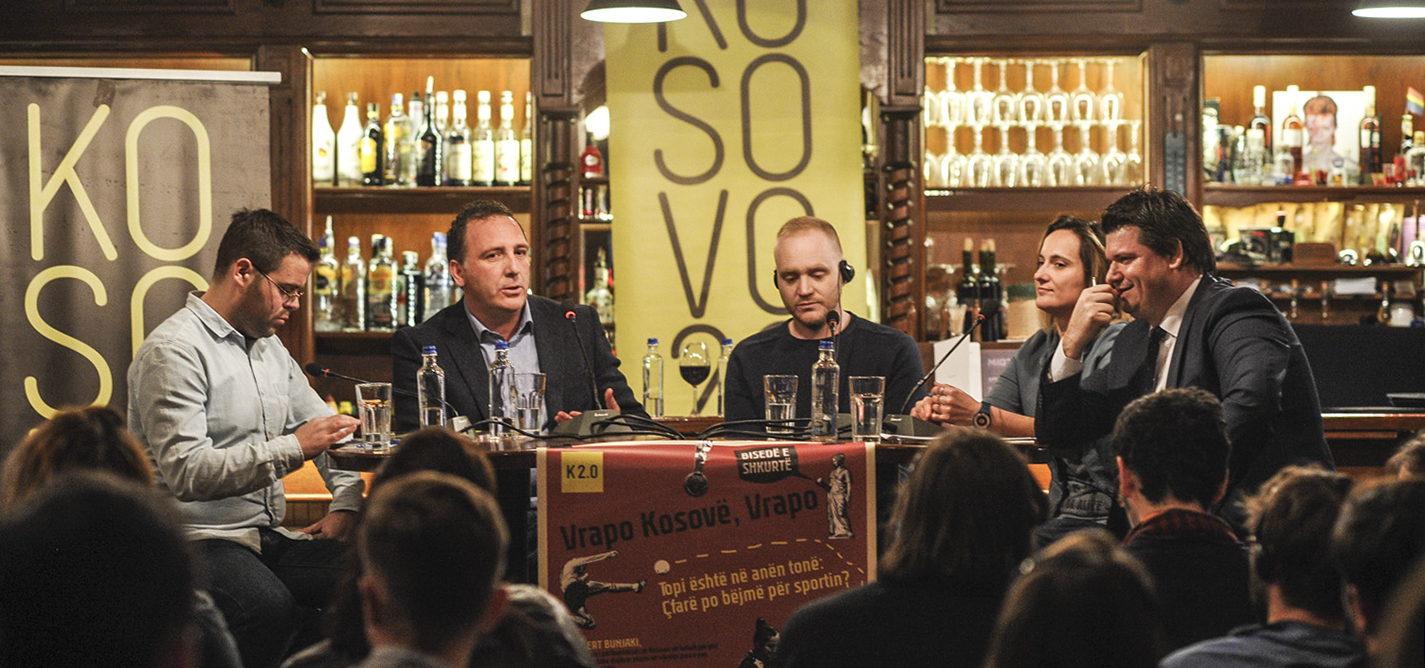
What next for sports in Kosovo?
Post-recognition era sports discussed in K2.0 Small Talk.
|22.03.2017
|
“If it can happen in the West Bank, if it can happen in Gaza, it can sure as hell happen in Kosovo.”
James MontagueJulia Kirner
Julia Kirner is a K2.0 editorial intern. She’s is studying for a master’s degree in peace and conflict studies in Germany. Her bachelor’s degree is in social and cultural anthropology and international law.
This story was originally written in English.